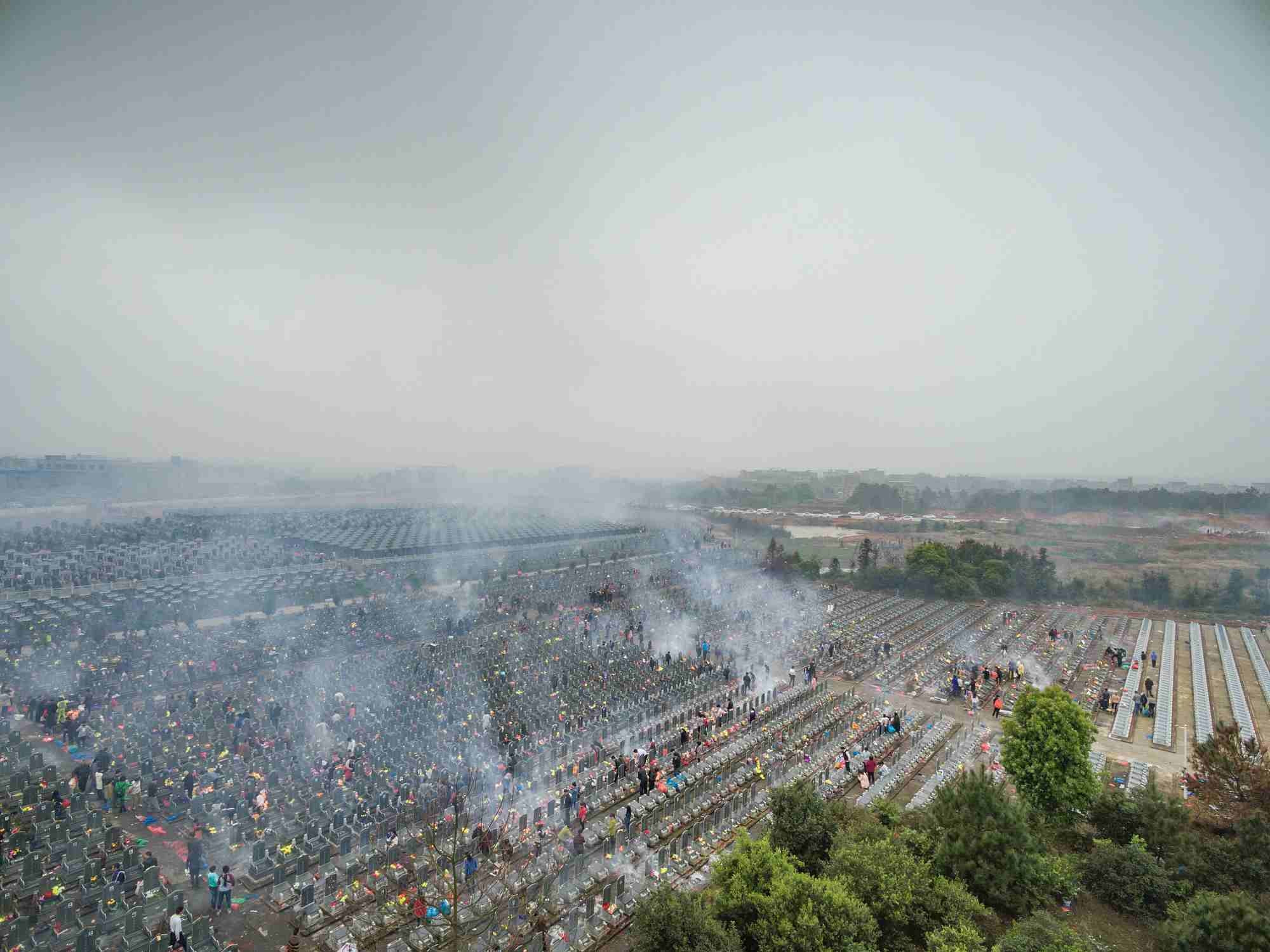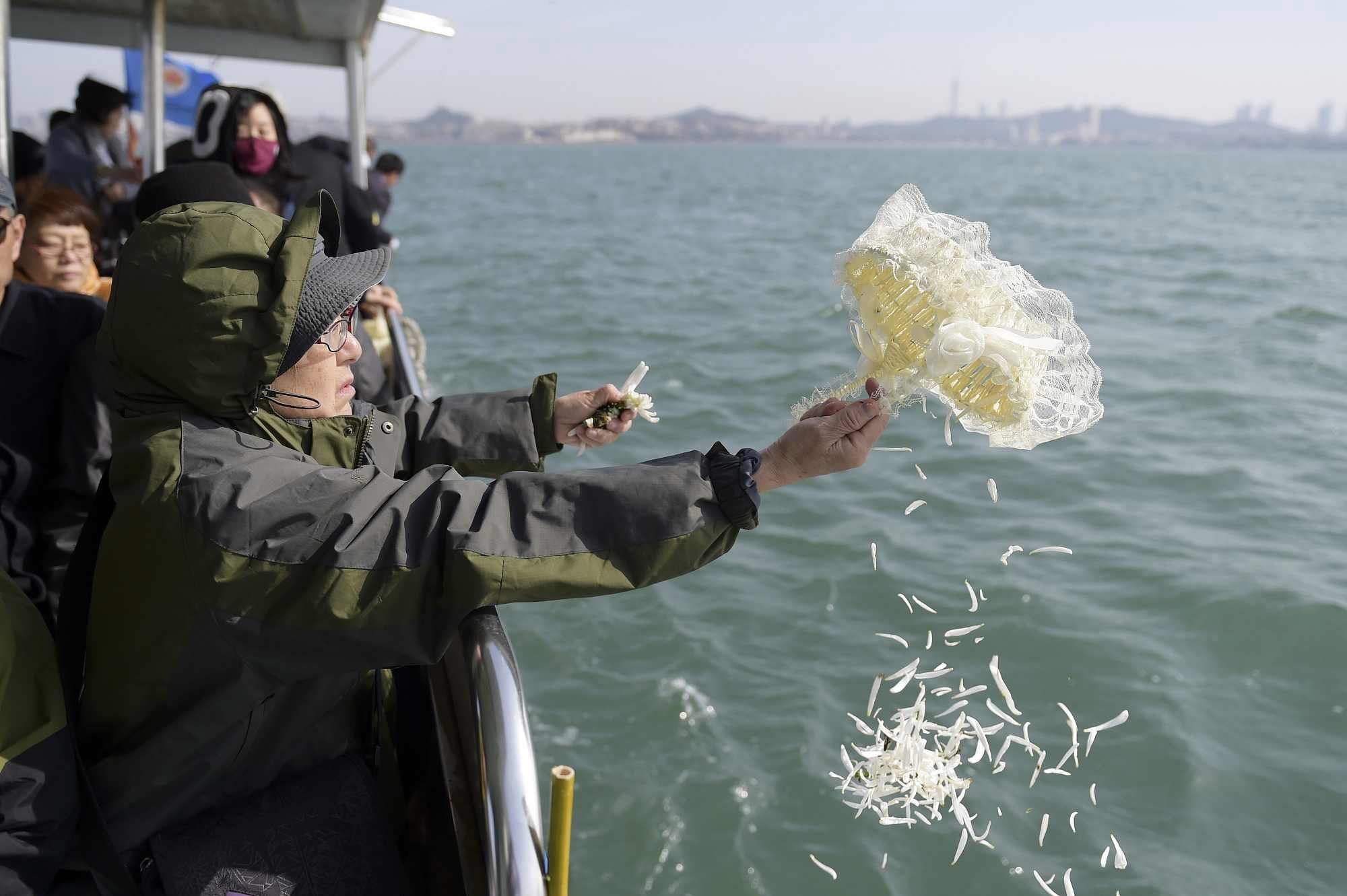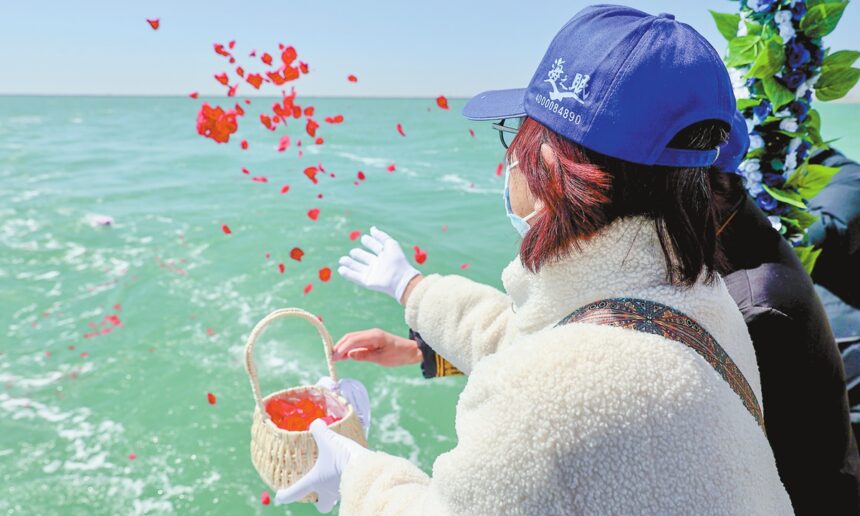In Dalian, a coastal city in northeast China’s Liaoning Province, sea burials during Qingming Festival are quickly becoming a preferred choice over traditional land burials. This change reflects evolving views on funeral practices in a country dealing with limited land availability.
Once considered inappropriate or unlucky, sea burials are now embraced by thousands every year, driven by growing awareness of environmental issues and support from the government. The Qingming Festival, a time for honouring loved ones who have passed, has further highlighted this shift.
Captain Chen Qi has been at the centre of this change. For 28 years, he has operated a vessel specifically for sea burials out of Dalian’s port. Back in 1997, he conducted ceremonies for only about a dozen families each year. Now, his team manages over 400 annually, helping lay more than 7,000 individuals to rest in the waters.
On Qingming Festival, also known as Tomb-Sweeping Day, his ship sets off at sunrise, carrying families with biodegradable urns. The ship’s whistle sounds three times as a mark of respect before the urns are gently released into the ocean.
This growing interest in sea burials is tied to both practical and cultural changes. Traditional land burials, which have long represented filial duty, require more space than urban areas can afford.
Grave plots can cost upwards of 100,000 yuan ($14,000), pushing families to look for more affordable options. Since 2012, around 17,000 people in Dalian have opted for sea burials, saving roughly 50,000 square metres of land.
The government has supported the trend by offering free sea burial services and financial incentives in Liaoning Province.
Environmental factors play a role too, as biodegradable urns leave no lasting waste, unlike conventional tombs. This aligns with China’s efforts to promote environmentally friendly practices.

China’s Qingming Festival
During the Qingming Festival, which traditionally involves visiting graves and making offerings, many families now choose sea burials instead. Captain Chen says people from faraway cities like Xi’an, over 1,000 kilometres inland, travel to Dalian to conduct these ceremonies.
Attitudes toward sea burials have changed substantially since Chen started. Initially, many saw the practice as disrespectful or unlucky. Tourists even avoided his sightseeing boat upon learning it doubled as a funeral vessel, forcing him to repurpose it entirely.
Early on, services were held at a park by the coast, but complaints from other visitors led to frequent relocations. By 2017, local authorities granted Chen a permanent pier at Dalian’s Port, marking official acceptance of sea burials.
Personal stories shed light on why this practice resonates with so many. Chang Chunsheng, from Tieling City, honoured his father’s love for the sea by choosing a sea burial. Others see it as a way to let their spirits remain free, carried by the currents.
Captain Chen notes that families now find comfort in the idea of water as an eternal connection, allowing future generations to remember their loved ones anywhere near the sea or a river.
On April 4 or 5 each year, the Qingming Festival brings this practice into focus as families gather to pay their respects. While many still visit graves, sea burials offer a more modern approach to paying tribute.

Choosing sea burials
In Dalian, ceremonies during this time see relatives aboard ships, scattering flower petals into the water instead of lighting incense or burning offerings. This method not only conserves land but also avoids the fire hazards associated with traditional rituals in wooded cemeteries.
Government programs continue to make sea burials appealing in coastal regions across China. In Liaoning, the city of Shenyang plans to sponsor 5,300 sea burials by 2025, while also providing funds for tree and floral burials.
Cities like Shanghai and Suzhou have also introduced subsidies, with families receiving up to 2,000 yuan ($280) for choosing sea burials. Despite private ceremonies costing as much as 10,000 yuan, demand remains strong, showing that sea burials are becoming a widely accepted choice.
As China navigates the balance between tradition and modern needs, the growing popularity of sea burials in Dalian reflects a broader cultural shift. The Qingming Festival, deeply rooted in honouring ancestors, now embraces the ocean as a resting place. Captain Chen’s journey from handling a few ceremonies to hundreds each year mirrors this transformation in how people view death, land, and remembrance.














